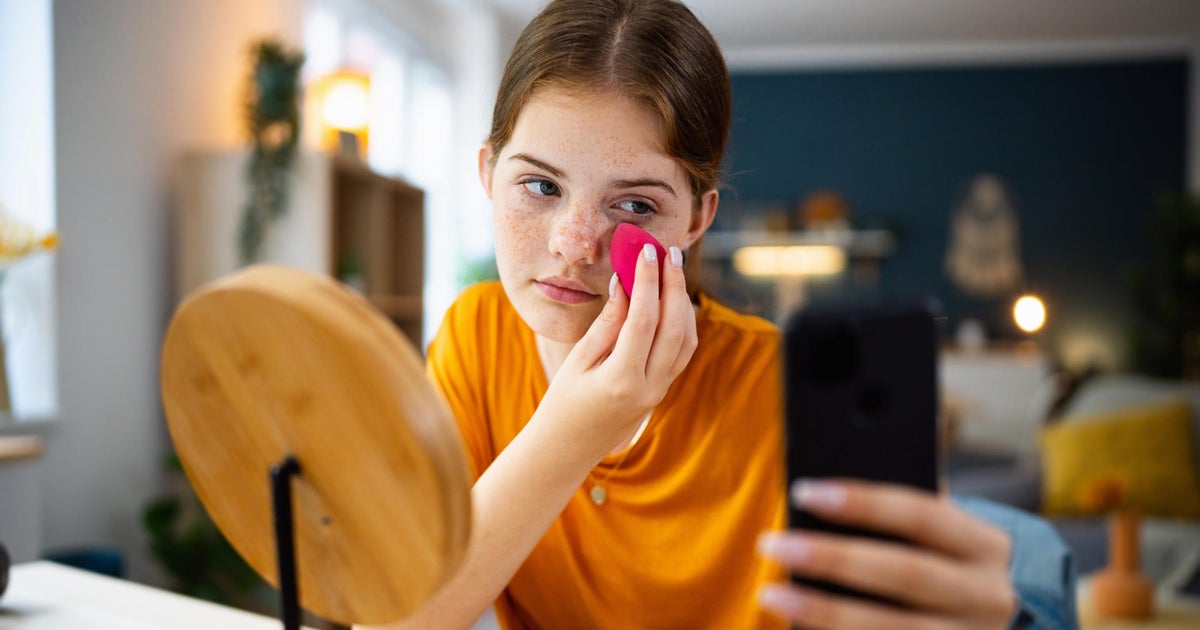Mark Zuckerberg says breaking up Facebook won't address "question of political discourse"
Facebook CEO Mark Zuckerberg has said he welcomes regulation of private companies. But in an interview with "CBS This Morning" co-host Gayle King, he said he doesn't think breaking up his social media empire will "address the question of political discourse."
"So you lead a company that has great power and great influence… Should one person, or one company, have that much power?" King asked.
"I think that the basic answer to what you're saying is, 'No,'" Zuckerberg replied. "Private companies should not be in the position of making so many important decisions, balancing different social values that we all care about."
Zuckerberg said "the real answer is for there to be regulation," which he said he "absolutely" welcomes.
King pressed the social media CEO, noting that some people might say regulation should include breaking up Facebook.
While acknowledging "real issues," Zuckerberg said "a lot of people are upset and are talking about measures like breaking up the company… that aren't actually going to fix these issues, right? I mean, breaking up Facebook isn't going to address the question of political discourse."
"Setting audacious goals is important"
As Facebook weathers a political storm, Zuckerberg and his wife Priscilla Chan are steering their Facebook dollars toward a different port: the Chan Zuckerberg Initiative (CZI), which is awarding millions of dollars to projects like eliminating all disease and improving equity in education.
In their first-ever joint network TV interview, the two spoke about what they want to accomplish with the philanthropic endeavor. The company turned four years old on Tuesday and has about 400 employees.
"There are a lot of philanthropies that try to bring capital, right? And help fund important work. But there aren't that many that have the capability to build tools to empower different folks who are on the front lines," Zuckerberg said.
"Teachers, doctors, scientists — we don't have the right tools to do that. And Mark has such incredible experience of building tools," Chan added.
Building those tools won't be cheap, so the couple has promised to give the initiative 99% of their personal wealth, mostly in the form of Facebook stock. At the time of the launch, that was worth about $45 billion.
"One of the promises that you gave… was you want to eliminate all diseases," King said. "I heard that and I went, 'What?'"
"Well, we're not going to do that ourselves, but... we do think that it will be possible to cure, prevent, or be able to manage all diseases by the end of this century," Zuckerberg said.
King noted that it sounded almost "fantastical" and a little "pie-in-the-sky," to which Chan said: "Setting audacious goals is important, and we need to think about beyond what's possible."
Chan confirmed one of those goals, to map every single cell in the human body, adding: "You would think that we already know all the cells and what they do, and the thing is, we don't … and we need a reference." Zuckerberg said such a biological map could serve as a "very basic building block for a lot of biological research to happen on top of that."
But the organization's work extends beyond science. It's also funding projects in the fields of criminal justice reform and education, which is one of Chan's many careers.
"One of the first things that she said to me was, 'Okay, if we're going to work together on education, you need to go be a teacher somewhere.' And I was like, 'I can't be a teacher. I'm running this company. It's a public company. I don't have time to do that.' And she was like, 'No,'" Zuckerberg recalled. "She was like... 'There's no way that we're going to do this work together if you don't get some experience doing this.' So I started this after-school program on entrepreneurship."
Chan told King she felt it was important for her husband to gain that practical experience because, "one, it's so rewarding... and, two, it makes you feel what you read in the news… in a visceral way … and I want you to have that deep gut feeling of, like, 'This is critical.'"
Parental duties
The letter announcing the birth of the CZI came just days after the birth of the couple's first daughter, Max.
Zuckerberg admitted to King that he was working on that letter even while his wife was in labor, which he said, "in retrospect," was "not my best thing."
"Once you became parents, did you start looking at the world differently?" King asked.
"When you're about to have a new child, it's just — you're so filled with hope about how things can go," Zuckerberg said.
"Most parents are trying to assemble the crib, Mark," King said.
"Well, we had that issue, too," Zuckerberg said. "You really want to work to remove anything that's going to hurt your child."



